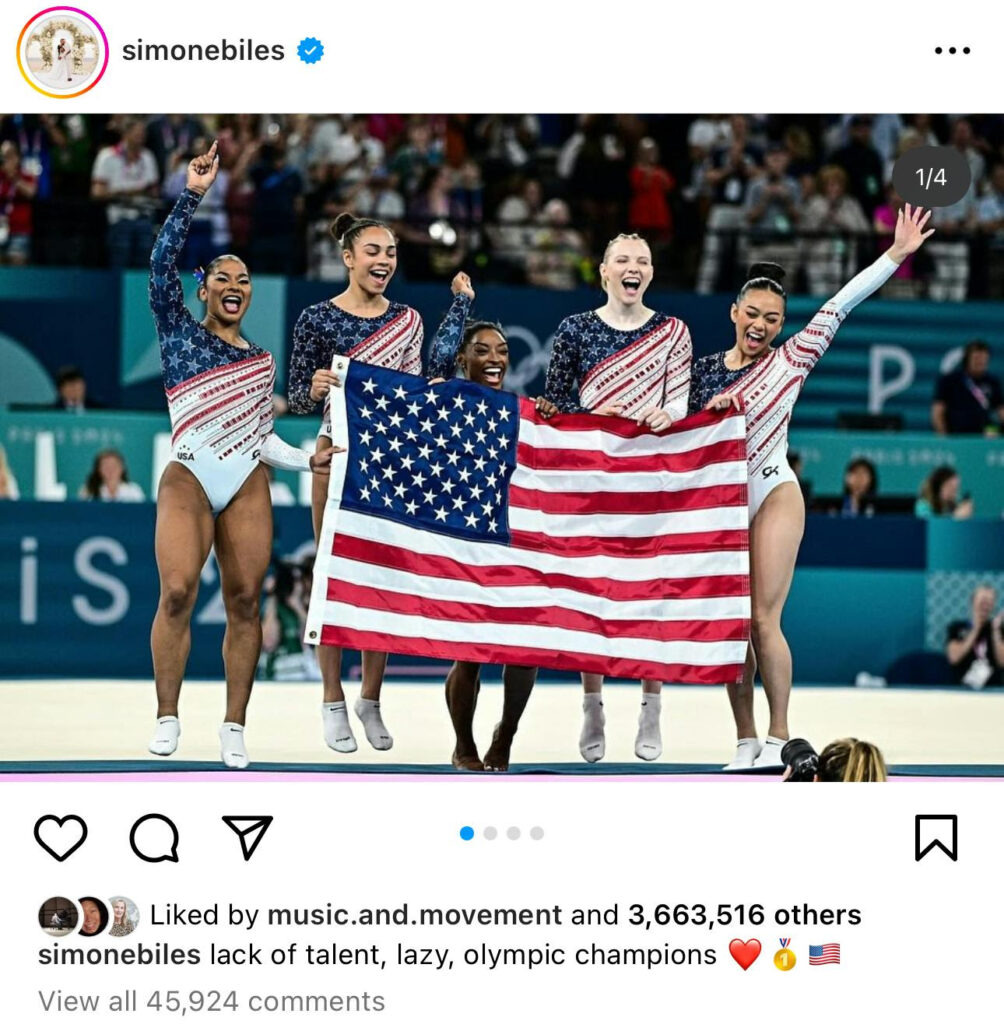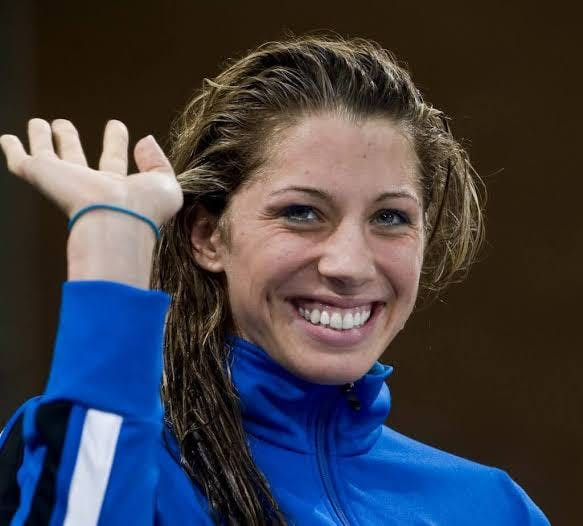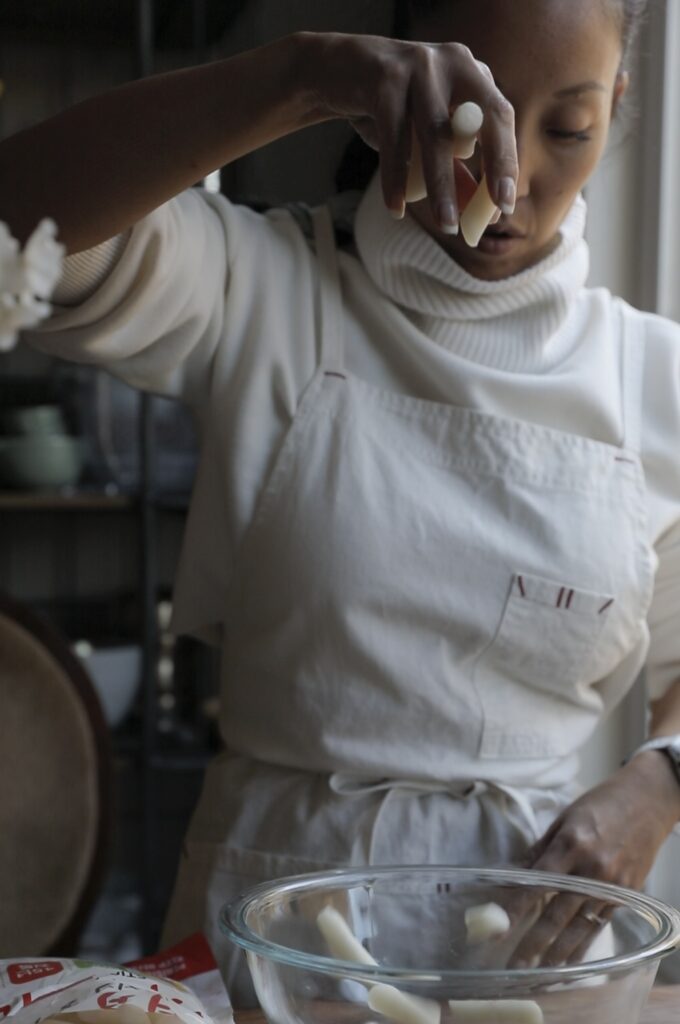Simone Biles, Mental Toughness, and Hi-Protein Recipes.
Listen to this week’s newsletter on Spotify, Apple, or wherever you get your podcasts!


Simone Biles & Mental Toughness
As I mentioned last week in “What I’m Watching,” I am currently enjoying a reacquaintance with the Olympics. I used to be a huge fan of the Games back when I was little, but right around the time they changed the schedule (i.e., alternating between winter and summer games every two years), I grew a little fatigued with the whole thing. What was once a four year excuse to celebrate turned into a not-as-special run-of-the-mill thing.
I know, I am fickle, but I am also honest!
For whatever reason, this summer, I have been bewitched by the likes of Stephen Neodoroscik (aka, “the Pommel Horse Guy”), Kim Yeji (the smoldering South Korean sharpshooter), and, of course, Simone Biles.
Unless you’ve been living under a rock, by now you will have heard of the small-in-stature-but-gigantic-in-spirit captain of the USA’s Women’s Gymnastics Team. By the time you’re reading this, she will have no doubt added even more medals to the already record breaking number she has collected throughout her career.
Her career–her Olympics career, which started all the way back in 2016, when she was 19 years old. Believe it or not, just a few years earlier, 19 would have been considered a bit on the older side when it came to the average age of female gymnasts. From 1976 to 2000, the average age of a female gymnast was 16 to 17 (the age requirement was increased from 14 to 16 in 1997.) The average age increased to 18 in 2004 and 2008, and then to 19 in 2012 and 2016. (See NBC News)
Biles was a little unlucky: though it’s likely she would have qualified, she was just one year shy of the age requirement (16 years old) during the 2012 London Games, and was therefore required to wait another four years before competing on what many consider to be the most spectacular world stage. But when she finally arrived–she catapulted straight into the living rooms and hearts of Americans all over the country, securing gold in the All-Around, Team, Vault, and Floor Exercise, while claiming bronze on the Balance Beam, to boot.
So, it came as quite a shock to fans around the nation when the Olympian elected to withdraw from the games in Tokyo (which took place a year delayed, in 2021, due to the pandemic). Perhaps things would have simmered down to a quiet rumbling had Biles withdrawn weeks before the Tokyo Games got under way, giving fans a little time to adjust to the news before the pomp and circumstance of the Opening Ceremonies diverted them; but, instead, she announced her withdrawal after they had already started, just before the Team Final and All-Around events.
Claiming she had the “twisties”–a phenomenon not unlike the “yips” in golf–Biles stated she would withdraw from the games to give the other women on her team the best chance at medaling and “to focus on [her] mental health and not jeopardize [her physical] health and well-being.” (See CNN) Although Biles’s withdrawal ultimately paved the way for other gymnasts to strut their stuff–e.g., Sunija Lee, Biles’s teammate, brought home the All-Around Gold Medal for the U.S.–the cost to Biles herself was immediate and brutal.
Within hours of her announcement, Biles became a talking point for conservative politicians, a walking embodiment of a culture of “weakness” nurtured by the progressive “woke” left. Turning Point USA founder, Charlie Kirk, called her a “selfish sociopath,” North Carolina Lt. Gov. Mark Robinson dubbed her “weak,” and JD Vance (now running mate to Donald Trump) opined that “it reflects pretty poorly on our sort of therapeutic society that we try to praise people, not for moments of strength… but for their weakest moments.”
Although I was not an avid watcher of the Tokyo Games (I basically watched zero sports during the pandemic), even I remember being a little bewildered by Biles’s decision. Though I certainly didn’t think she was a “sociopath” (I honestly don’t even understand how this is part of the conversation…), I also wondered whether she was getting a little too inside her own head, giving up prematurely, and, yes, letting her teammates down. Because here’s the thing: if I were in her shoes, the fear of disappointing my coach, my team, and the millions of people all over the country who were counting on me to represent the U.S. of A would have absolutely prevented me from even thinking of withdrawing.
The other thing, of course, was that Biles was 24 years old at the time of the Tokyo Games–well above the average age of female gymnasts (which, by that time, was 20). Her reappearance on that world stage was, by no means, a guarantee.
Again, unless you’ve been living under a rock, you will know that I was so so so SOooooooOOOOO wrong. How DARE I underestimate THE Simone Biles?!?

With Biles back at the helm, Team USA dominated the Team Finals in Paris, securing the Gold Medal with a staggering 5.8 margin. Biles went on to re-establish her individual dominance as well, winning the Gold in the All-Around competition, while her teammate, the reigning Olympic All-Around champion, Sunija Lee, collected Bronze (which, given her frightful ordeal with kidney disease in the past two years, is, itself extraordinary). In short, Simone Biles’s comeback is the stuff of legends.
Biles’s caption beneath her victorious Instagram post reads: “lack of talent, lazy, olympic champions.” At first, I assumed she was referring to all those who’d come for her when she withdrew back in 2021, the disturbingly angry men who’d called her “selfish,” “weak,” and even “sociopathic.” But it turns out that the words were meant for one of Biles’s former teammates, a woman who was not on the 2024 team, but for some unfathomable reason thought it was entirely ok to declare on YouTube, “Besides Simone, I feel like the talent and the depth just isn’t like what it used to be.” This former (idiotic) teammate goes on to say, “The girls just don’t have the work ethic.”
Not-that-smart-former-teammate then appears to lament the disappearance of the “good old days” with the advent of stricter regulatory initiatives like “Safesport,” rules designed to guard against the types of abuses unearthed in the aftermath of the Nasser investigation. Obviously, she wasn’t promoting the sexual abuse of gymnasts, but she was clearly suggesting that the culture of gymnastics in the United States had, in her mind, shifted regrettably to something a touch too soft.
Cue: angry pundits on coddling progressive woke-ism that results in sociopathy.
Well, it turns out that it actually results in career longevity and more medals.
Simone Biles is 27 years old–five years older than the average age of female gymnasts at the Paris Games. Indeed, just 25 years ago, she would have almost certainly been written off as too old to compete.
A few weeks ago, The New Yorker published a fascinating piece on this subject: “Elite Gymnasts Are Aging Up.” Louisa Thomas vividly recounts just how young female Olympians used to be: “In 1992, all of the all-around Olympic medallists were fifteen years old. They were tiny, hipless and breastless, and they seemed, like birds, to have hollow bones.” Thomas goes on to note the changing tide, how female gymnasts, today, are the oldest they’ve ever been, with competitors well into their 30s. “Longevity has become normal,” she observes.
Thomas posits that the “aging up” of female Olympic athletes may have to do with more humane and tailored training: “as more coaches and athletes develop a better, more humane, and more scientific understanding of how the body works and recovers as it ages, the hope is that the rate of some common injuries will decline—and, with an understanding that careers can be longer if managed properly, so will the pressure to compete through those injuries.”
What I think is so telling about Simone Biles’s story, however, is that “more humane” training required her to walk away from competition, altogether. And perhaps it was this choice–more than any “more scientific understanding of how the body works”–that allowed her to extend her career by at least another 4 years (and perhaps another 8).
To gain a little more insight into how mental toughness–that slippery term that so many people love to talk about but never quite define–develops or unravels for athletes like Simone Biles, I spoke with Olympic Bronze Medalist, Caroline Burckle. Burckle, a competitive swimmer, earned the Bronze Medal at the 2008 Olympic Games in Beijing, for swimming in the 4×200-meter freestyle relay. She started her Olympic career when she was 21 and retired at 24.

“It’s incredible to witness how athletes can evolve from the ages of 13 years to their mid-20s,” Burckle begins our chat. “You can even see that evolution of their mental toughness and of their mind even more than their physicality.” She goes on to state that “the overall mental toughness in an athlete in their mid-20s is going to be substantially more robust just by experience, by understanding their bodies, by understanding how their mind is connected to their bodies, that their body is connected to their minds.”
The last point that Burckle makes is particularly relevant here, since Biles’s case of the “twisties” was, as Biles herself described it, “basically [when] your mind and your body is at a disconnect.”
This confronts athletes–particularly those who compete in sports that historically skew quite young (like swimming and gymnastics)–with a rather challenging dilemma: “You can’t bypass your raw talent or ability, physically, at a young age and sit back and say, ‘Well, I wanna wait until I’m a bit more mentally tough,'” Burckle notes.
But is mental toughness really that important? Can’t an athlete get by with “still in development” levels of mental toughness?
According to Burckle, mental toughness plays a massive role in an athlete’s competitiveness, “almost 100% sometimes,” she says while chuckling. “You train it. You train it every day.”
But when they lose the “who am I doing this for?” Burckle describes, athletes inevitably burn out. She posits that “the expectations of the world have completely crushed their ability to step into their own mental toughness. Cuz when you’re mentally tough, you really know why you’re there and why you’re doing it.”
BINGO.
Burckle shares that for the first half of her athletic career she was “doing it for everyone else.” She goes on to remember, “I got really good really young…. That pressure is exhausting. It’s defeating.” Burckle would make it to the Olympic Trials while she was still in high school, just missing the Olympic team that year by one slot.
Her senior year in college, she won two NCAA individual championships, was named the 2008 NCAA Female Swimmer of the Year, and broke the oldest-standing women’s NCAA swimming record in the 500-yard freestyle. She was well on her way to the Olympic stage, but, she recalls, “I shut down. My body was in complete freeze.”
When speaking of showing up to the Olympic Trials and being prepared to compete, she says, “You’re either there or you’re not…. It’s hard. I really struggled with that a lot. It takes a lot of deliberate, intentional effort mentally to get yourself to that spot, which is almost just as exhausting as the physical training you’re putting in.”
Listening to her, all I could think was,
How many 16, 17, 18 year olds… even 20, 21, 22 year olds have that level of self-awareness and intentionality? To not buckle under the pressure of performing for everyone?
So, what is the solution? How are the Simone Biles’s of the world able to develop mental toughness on a parallel track with the physical prowess necessary to succeed Olympics?
To Burckle, one immediate answer comes to mind: “The USOPC [now] has 20-something mental health professionals at the Olympics. We had one. For all Team USA…. We need that support. There’s nothing wrong or broken about that.”
Burckle then drops the following bomb:
“The most mentally tough thing you can do is to raise your hand and say ‘I know what I need to do here to be better.'” Because, to be mentally tough, “You have to choose yourself and what you need.”
There was my mistake. I, and perhaps others, viewed Biles’s withdrawal as the ultimate “bail” on her team and country, but as Burckle succinctly put it, “Their intention is to get better. It’s not to bail out.”
In the past several days, we, as a nation, have been grappling with a different kind of withdrawal. Many have come out and declared that this particular withdrawal was an act of profound patriotism. Simone Biles withdrew from the Olympics in Tokyo subjecting herself to the foulest of criticism, people openly (and privately) questioning her commitment to team and country.
But she did it because she knew it was necessary to “get better.” And in so doing, she not only added years to her competitive capacity, she, and her teammates, are now bringing home a collection of clinking medals, ones that would ostensibly be going home to other countries had Biles not re-evaluated her “why” and dropped out when she found it lacking.
It wasn’t just an act of mental toughness, contrary to what so many believed, it was also an act of profound selflessness and patriotism.
Burckle wistfully imagines how things might have been different for her if she’d had more than the one therapist or the ability to take a break: “I mean, I think about myself, now, and it’s like, if I would have had any of that along with the physical ability, whoo…” she pauses, lifting her gaze up to the ceiling for a second. “How much better could you have been?” she asks herself.
And I wonder, how many more Olympic games could she have competed at? How many more medals could she have brought home?
Thoughts on this week’s newsletter?
Recipe Inspo.
Hi-Protein Mediterranean Toast!

More Hi-Protein Recipes
- Easy & Hi-Protein Vegan Kimchi Jjigae Reigns Supreme – Black beans make this already protein filled stew a protein power meal! Fuel your next workout with this spicy Korean classic!
- Better Than Chipotle Sofritas Bowl – This hi-protein bowl comes together so quickly and it’s SO delicious! It’s the perfect post-workout meal!
What I’m…
Watching. I recently had the opportunity to meet with Sophie Morgan, a British television presenter and activist. A major spinal injury from a car accident when she was 18 left her paralyzed from the chest down. Since then, she has become a vocal and effective advocate for disabled people and recently came out with a documentary, Sophie Morgan’s Fight to Fly. The film details the many deficiencies in the airline industry when it comes to the rights of its disabled passengers, along with Morgan’s fight to fix them. While it’s only airing in the UK, you can still watch it with a VPN! How to Watch.
Reading. I’ve finally wrapped up all my sci-fi reading and have gone back to another favorite genre, psychological suspense thrillers! Lucy Foley’s The Midnight Feast hits all the right spots, with mythology, intrigue, and the prevailing lurk of something sinister. I love Lucy Foley’s work and find her character studies to be rich, funny, and quite believable, even when they are placed in the most unbelievable of circumstances! Read Now!
Parting Thoughts.
I came across the most astonishing statistic the other day:
Nearly 40% of Americans believe they are fit enough to compete in an Olympic event. (See OnePoll.US)
I actually saw this really hilarious video posted by none other than the two-time Olympic medalist Michelle Kwan who, after posting the stat, attempted a “wolf turn” on the balance beam (Biles is one of the few who can do three of them) and promptly fell straight to the ground!
First, do you think you could compete at the Olympics? Not necessarily in gymnastics or swimming or figure skating, but in some other event? Maybe break-dancing, sharp-shooting, trampoline jumping?
Even if you are one of the 60% of us who do NOT believe we can compete at the highest level, there is probably something you can do better than most. And, chances are, you’re doing it a lot. For 18 years, I was better at lawyering than most people–just by virtue of going to law school and passing the bar. In fact, I’ll say that I was probably better at it than even most lawyers. And I was lawyering a lot. I am no Olympic athlete, but I can certainly attest to the extraordinary pressure and stress that attends that kind of job. And I constantly had to re-evaluate the “why.” Oftentimes, I came up short.
Unfortunately, revealing any type of mental fragility as a trial lawyer was simply not an option. As an associate, my “clients” were the partners–the lawyers at my firm who got to select the associates they wanted on their team. It’s literally like those days in elementary school, when you are forced to mill about on the pavement at recess while two of the “cool kids” picked who’d be on their kickball teams. I’ve experienced what it’s like being picked last and it’s not pleasant. I sure as heck didn’t want the same humiliating playground experience to unfold at the firm. Not only would it be embarrassing, it could literally cost me my job (those who don’t get picked enough will fail to meet their billable hours quota and eventually get fired).
As a lawyer–particularly a trial lawyer–the last thing I wanted to reveal was any sort of vulnerability. I was dubbed a “pitbull” by my colleagues and I was going to do everything I could to ensure my reputation remained intact. Taking time off for anything other than a wedding (and by that, I mean my own) or vacation was unthinkable (even childcare leave can be a fraught decision in BigLaw). Sure, the firm provided resources and time off for mental health and substance abuse, but I was not about to torpedo my career by taking advantage of them.
Does any of this sound relatable to you?
Whether it’s your job, your business, your family, or even in your social group, taking a “mental health break” may not sound doable. It may seem too costly. Indeed, it may actually be too costly. While I’m not saying we should all walk away from our responsibilities periodically to guard against burnout, I am saying that we should consider what Caroline suggested: taking that break might be the thing that helps us be a better lawyer, better mother, better friend.
On the morning she won the Gold Medal in the Team Final, Biles started her day by calling her therapist.
Prioritizing mental health doesn’t need to be taboo, whispered behind closed doors. It doesn’t need to be unordinary.
In fact, according to one of the greatest athletes in human history, it may be the secret to becoming an extraordinary you.
Wishing you all the best,
-Joanne






If I remember correctly, Simone was abused by her coach and needed time to recover from that experience.
That is awful. All the more reason not to demonize her for her decision!
I have never understood why the whole nation thinks that these amazing olympians somehow belong to the country and nit to themselves. And how everybody is entitled to openly judge and condemn them. Especially considering that the entire nation mistly consists of couch potatoes whose biggest effort consists of changing the channel with the remote. As an athlete myself i know how difficult it is to remove yourselffrom a competition, never mind doing soon the international stage.
Agreed. The Monday Morning Quarterback / Back Seat Driver syndrome. Certainly not helped by almost every major sport having a pre and post game tv crew with way too many talking heads seemingly criticizing every move of the athletes. In sports, 1 person or team wins, that doesn’t make every other person / team a failure. The positive thing is I’ve heard and seen more athletes than I can ever remember in these olympic games giving themself credit and grace, even if they didn’t win the gold. Perhaps this is a result of the “aging up” situation. To find fault with a silver is always a little sad for me to see.
hahaha, the image of couch potatoes and their peanut gallery-ing!! and you are so right–the hardest decision we can ever make as athletes is taking a DNF. She should be applauded for her decision!